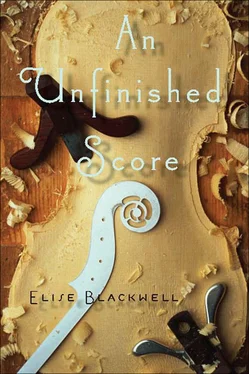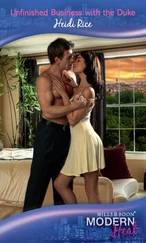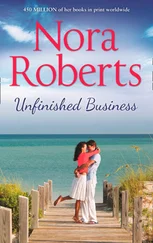She takes her viola from its case and stands over the score laid out on the high bed, the sheets of paper now looking almost harmless against the red bedspread. She plays through as best she can, straining to sustain the highest note her instrument is capable of, exhausting herself with the complicated fingerings and hand shifts, elbow pinching from the acrobatic bow work, patching through to the final eerie note.
An impossible piece of music, yes, but if she can ever play it well, then gorgeous, disturbing, harrowing genius.
Suzanne does not remember the dream, yet waking feels like escaping someone else’s brain, as though she’s been imprisoned in another head and is running down a foreign tongue, panicked to breathe fresh air before she is closed in forever.
After showering she dresses in jeans and tee-shirt, sandals and silver hoops. Fuck Olivia . She will go as herself, wear her regular uniform into battle; she doesn’t have to pretend to be a better self, a put-together self, a composed woman. Alex loved me .
Downstairs she carries a paper cup of coffee across the lobby and down the hall to the business center, which is cramped in comparison to the otherwise extravagantly spacious hotel. In the breezeless room, she returns a short message from Adele: “I miss you, too!”
There is also an email from Daniel. “I’m in love, really in love. Don’t worry, it’s not with you this time, or even Petra. I know I just met her, but I’m going to marry her. You’re a romantic still, right? So tell me you’re happy for me.”
“You know me,” Suzanne writes back. “Sucker for a happy ending. Send me an invitation. p.s. Who the hell is she?” As she hits send she remembers seeing Daniel walking toward Linda at the party as she played with her daughter and Adele. Ashes, ashes, we all fall down . Maybe Daniel’s proposing to her, to the only widow Suzanne knows, other than Olivia.
The next new email is from Petra. Suzanne scrapes her teeth over her bottom lip. Olivia asked what she’d told Ben, but the person Suzanne lied to about this trip was Petra. Her story was fabrication: she needed to lay filler to finish up some old studio tracks in order to be paid for work she’d done before the founding of the Princeton Quartet. So she not only lied to Petra but asked Petra to lie by not telling Anthony, who might not approve of her taking outside work at this point in their performance cycle. Her story was plausible enough, and certainly it wouldn’t cost Petra much to withhold a small secret from Anthony. Petra agreed to do so if the lie was one of omission. “I hate saying things that aren’t true,” she said. Still Suzanne’s stomach pinches at the idea, and she knows she will have to figure out a way to seem to have more money than she did, to cut some hidden corner and offer the savings to Petra for Adele’s surgery. She lowers her head, realizing the worst of what she’s done: she has used Adele, telling Petra they needed the time alone because Adele was becoming more attached to Suzanne than to Petra. She stares at her hands on the keyboard, hands that belong to someone who would manipulate the affections of other people. Perhaps this is how it happens: You slip along and have your reasons, and one day you wake up as a bad person.
She opens Petra’s email, which holds news: Anthony has run the numbers. Princeton is against the war, or at least against war. “He wants to perform the Black Angels Quartet , with maximum publicity and a live recording.” He’s calculated that it’s a risk but not much of one if they work very hard and play very well and look very good doing it. “He thinks there could be real money in it, that this could make us nationally,” Petra concludes. “He’s already asked for you and me to wear our hair down for the performance. Asshole!”
Relieved that Petra seems to be herself again, Suzanne writes, “You know me, slut like you. I’ll play anything, and I’ll have fabulous hair.”
The next email, from Anthony himself, links to a list of ideas for increasing concert attendance. Developed by members of a children’s orchestra in Texas, the list includes guerrilla performances in public places, door prizes, costumed events, and the participation of pop singers. “Just throwing it out there,” Anthony’s note says. “Keep an open mind, you guys.”
Having squandered too much on yesterday’s taxis, and because she is up early, Suzanne navigates Chicago’s public transportation. After a ride in a crowded L-car that smells weirdly like sugar, a bus carries her from the urban to the suburban. Its belly is empty save for half-a-dozen young women who speak to each other in Spanish. They disperse at Suzanne’s stop, which is the end of the bus line. Suzanne has about a mile farther to walk, but the day is pleasant and she wishes the walk would take forever. The idea of returning to Alex’s house — Olivia’s house — is as frightening as being trapped in the mind she awoke from.
The houses she passes proclaim upper-middle-class respectability. Though Suzanne knows that unhappiness can invade any home, seeping through its cracks as easily as the scent of honeysuckle or skunk, and that all people are deeply strange when you really know them, it’s hard to imagine anything but perfectly browning apple pies, badminton games in the backyard, dinners eaten in the comfortable knowledge of growing stock portfolios.
Books romanticize the starving composer who survives on half a loaf of bread, but Suzanne suspects that comfort, or at least stability, are better friends to art than is squalor. Bach was poor, feeding all those mouths on an organist’s take-home pay, but the income was regular, and feed the mouths he did. Suzanne thinks of George Crumb, composer of the antiwar music they will soon prepare for performance. He taught at Penn State for three decades before retiring to the comfortable home in which he and his wife of fifty years raised their children. A wonderfully ordinary life from which he wrote some of his century’s most interesting music.
Despite Doug’s biographical theories, Suzanne wonders if music doesn’t exist outside its circumstances, standing alone across time, carried into the future by its score, its origins and motivations and even subject matter ultimately irrelevant. Its composer’s life irrelevant . So why not a long, happy marriage? Why not a nice home with well-adjusted children, funded by a dependable salary? Ben always asks why happiness should be anyone’s primary goal, but can’t someone write great music and lead a normal, happy life? Crumb is not the only example, yet Suzanne has never expected to be happy. Even her relationship with Alex was more about compulsion than the pursuit of joy. And now — now she does not deserve to be happy.
Again Olivia seems perfectly ready for her. In a long, simple dress she looks even more elegant than she did yesterday, and the house smells of baking, of something yeasted and sweet. A guest bedroom has been prepared: tightly made bed with towel and washcloth folded on its corner, fresh irises, water pitcher, and magazines on the nightstand. Everything suggests a welcome visitor.
Suzanne sets her suitcase and viola on the taut bed, startled when she realizes that Olivia has reappeared behind her, in the doorway.
“I’ll give you the tour before you get started.”
As they walk through the house, Suzanne cannot hear her own footsteps. A ghost haunting Alex’s house, she feels in long moments that he is the one alive, merely away on a short tour, about to phone home from Vienna.
Olivia leads her first to the music library, which comfortably holds a Bösendorfer baby grand at its center. In one corner is an armchair, a small stereo system, and, held upright by stands, two violins, a viola, and a cello. An inanimate quartet. In another is a cabinet, which Olivia opens to reveal smaller wind instruments, metronomes, wood blocks, papers, clips, pens. The room’s side walls and most of the near wall, save for the doorway, are fully shelved, filled top to bottom with CDs, books, score binders. The far wall is split by French doors that open into the backyard. Suzanne sees the gazebo, Olivia’s gardens, a sliver of Lake Michigan.
Читать дальше












